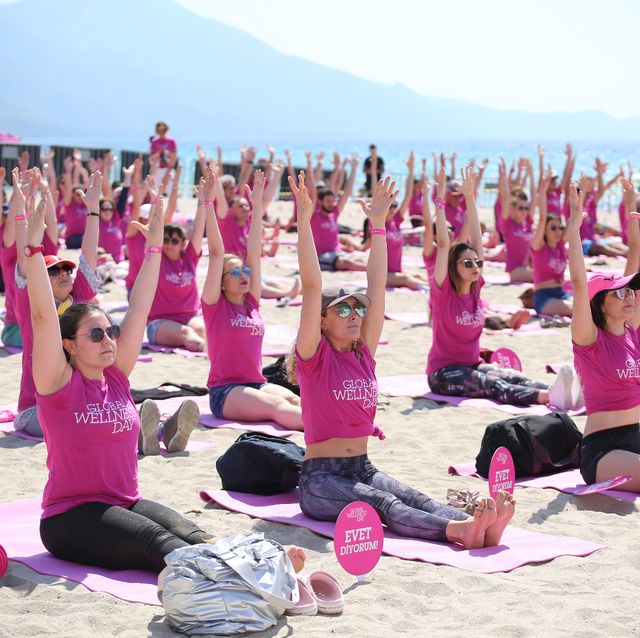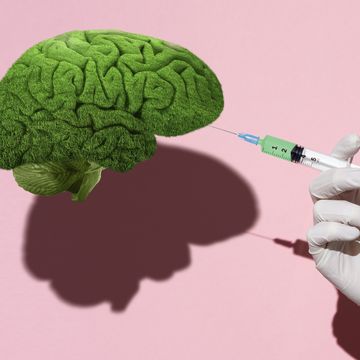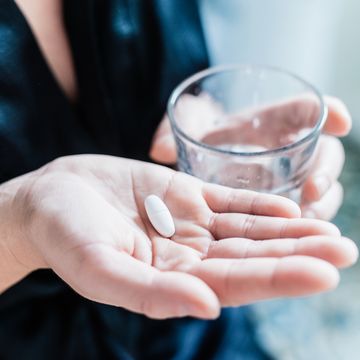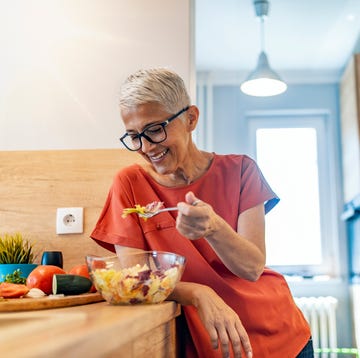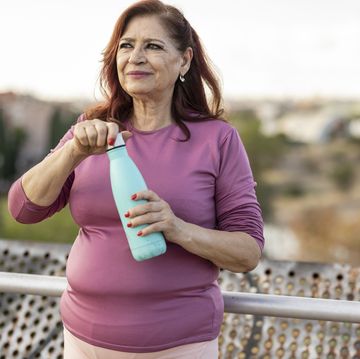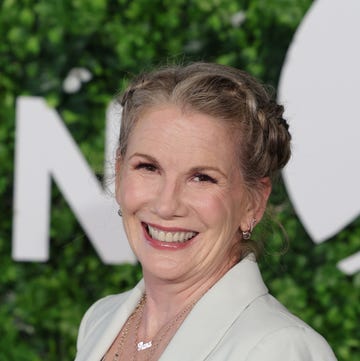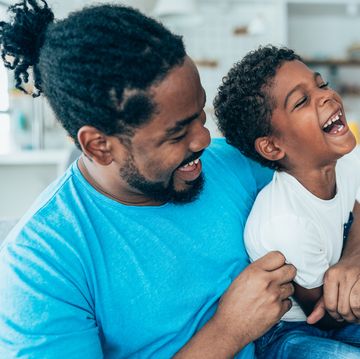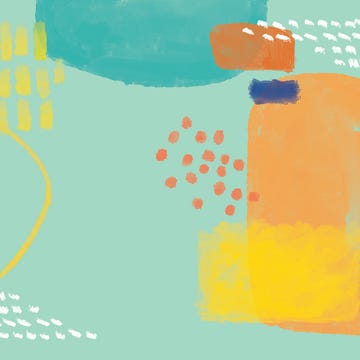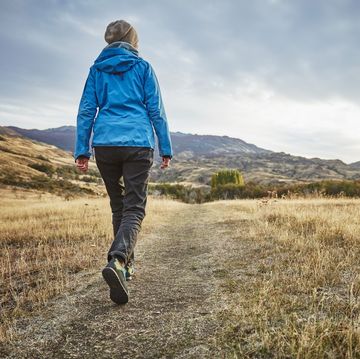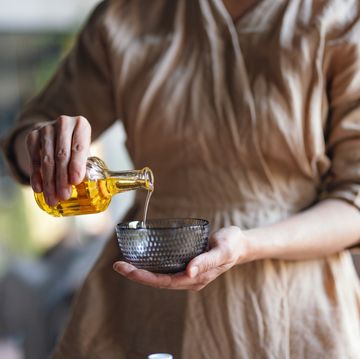- June 13, 2020 was Global Wellness Day.
- This year, the ninth annual Global Wellness Day hosted a 24-hour livestream of wellness-related events, including presentations, workouts, and breath work.
- Here are three takeaways from Global Wellness Day 2020.
The ninth annual Global Wellness Day took place on June 13, 2020, and it did not disappoint. Each year, the annual event focuses on mental health, nutrition, exercise, and wellbeing with the motto, "One day can change your whole life."
Due to the novel coronavirus pandemic, Global Wellness Day took place virtually with a 24-hour live stream offering wellness-related events that included presentation, workouts, meditations, and other fun events hosted by experts from all around the world.
Here are three healthy eating tips from Global Wellness Day ambassadors.
1. View food as medicine.
Adedamola Ladejobi, certified personal nutritionist and weight loss expert, wants us to know that we are what we eat—literally.
After suffering from Gastroesophageal reflux disease (GERD) and obesity, Ladejobi decided to make healthy changes in her diet and exercise routine to lose weight. It was transformational for her in multiple ways, including improving her health and contributing to weight loss. "I started to view food as medicine," she said.
"Your food is not just about weight loss or weight gain. You food literally dictates everything that goes on with your body," she said, adding that we need to focus not only on calorie intake, but also on macronutrients and micronutrients.
"We need to stop seeing food as just calories alone," she said. "Whatever you put in body sends signal to your brain and will also give you energy. So whatever you eat determines whether you have a great amount of energy on a daily basis or whether you're going to be weak all the time and suffer from fatigue."
Ladejobi said that what we eat also has a great impact on our mental health, too. "We do need to eat certain foods and one of these type of foods is healthy fats and getting good sources vitamin D," she said, adding that vitamin D is great for stress relief and calming the nervous system.
Especially following the coronavirus pandemic, Ladejobi said we need to focus on foods that can help our mental health, including foods that are rich in potassium, magnesium, and vitamin b6. She also said guava leaf and chamomile tea also help reduce stress and help with sleep. Lastly, avoid white sugar or anything with a long shelf life. "Whenever you're eating, ask yourself, are you feeding disease or are you fighting disease?" she asked. Some food for thought!
2. Eat like your life depends on it, because it does.
"If ever there was a time when making conscious choices for your health mattes, this is it," said Gloria Treister, H.H.P., founder of Wellness Evolution and Global Wellness Day ambassador, drawing on the COVID-19 pandemic.
"I think most people understand what wellness is, but I think what's missing with wellness today is the 'why,'" she said. "Every day we make decisions. Each and every one of these decisions is either lead you in the direction of developing good health or towards developing poor health."
"When you have poor health, you have low energy, you're not eating right, and you're quality of life is not so good," she continued. "When you're developing wellness, you're optimally functioning, so you have more energy, you feel better, you're exercising, you're eating right, you're managing your stress, and you have fine tune biochemistry."
Treister said that health is cumulative, and the top ten global causes of death from the World Health Organization (WHO) includes heart disease, stroke, respiratory problems, diabetes, and dementia. "But is that what's really killing us? Or is the actual cause of death the lifestyle behaviors that lead up to those diseases?" she asked, referring to dietary risks, high blood pressure, high cholesterol levels, sugar intake, alcohol abuse, and smoking. "All of those things are lifestyle behaviors that we have control over, and we have the power to stop that."
"In my view, wellness all encompassing holistic approaching. It's more than a physical fitness program, it's more than nutrition, and it's more than taking a pill or vitamins," she said. "Wellness takes into account the whole person." Treister said physical health, happiness, having a sense of purpose, managing stress, spirituality, community, and having a good family unit are all principles of Global Wellness Day.
Treister also highlighted the role of prevention through healthy eating. "I want you to eat like your life depends on it, because it does," she said. Treister recommends eating fresh, local, organic foods when possible and cutting out sugar, gluten, and dairy. "All your body is looking for is homeostasis," she said. "In medicine, that's just another word for balance."
3. Listen to the signals your body is sending you.
Our bodies are like giant computers, continuously sending out and responding to various signals. Board certified family physician and functional medicine doctor Tammy Gutierrez, M.D., said that the body is a healing machine that is striving for balance in a complex dance of biology, chemistry, and physics. "We need to understand that dance and support it if we want to be truly well."
"Balance and homeostasis are what wellness really is," Gutierrez said. "Living is a constant push and pull between things that cause damage or inflammation and things that clean up the mess and help us heal. If we have enough internal resources to clean up our internal mess quickly, then we feel healthy and well."
Gutierrez said that every single choice we make—small or big—impacts our experience of homeostasis. "By the time most adults have turned 30 or 40, we've often spent up our cleaning supply, so we have fewer resources to spend on healing," she said. "Because the body is such an amazing healing machine, any time you have a chronic problem, it means that something is in the way disrupting the natural healing process."
Typically, Gutierrez said a chronic illness develops due to an ongoing infection or the body is lacking the materials or energy to do the repairs, such as nutrients or sleep.
"You need to remember that you and your body are a team working together, not against one another," she said. "Unfortunately, many of us have lost sight of how to communicate internally with ourselves. Your body sends you messages all day long, usually in the form of feelings or symptoms, but we are often taught to stay focused on our work and what society expects for us. And we learn at a very young age to tune out."
Gutierrez said that if we can learn to listen to the messages that our bodies send early on, then we can restore balance much more quickly and avoid the troublesome problems like chronic illness or other conditions later on in life.
We can communicate back with our bodies by eating nutritious food, getting enough sleep, exercising, and avoiding exposure to toxins. "The health choices we make each day are how we communicate with our bodies. If you are constantly staying offensive things to your body in the form of junk food, smoking, or alcohol, sooner or later going to get a response back you don't like."
Gutierrez recommends organizing the types of choices we can make based on the Functional Medicine Model of Health, which means aiming for balancing with sleep, exercise, nutrition, stress management, and relationships in our lives. "Understand that wellness is a journey, not a destination," she said. "Only you can choose where to step next."
Support from readers like you helps us do our best work. Go here to subscribe to Prevention and get 12 FREE gifts. And sign up for our FREE newsletter here for daily health, nutrition, and fitness advice.

Currently an assistant editor at Prevention.com, Nicol is a Manhattan-based journalist who specializes in health, wellness, beauty, fashion, business, and lifestyle. Her work has appeared in Women’s Health, Good Housekeeping, Woman’s Day, Houston Chronicle, Business Insider, INSIDER, Everyday Health, and more. When Nicol isn't writing, she loves trying new workout classes, testing out the latest face mask, and traveling. Follow her on Instagram for the latest on health, wellness, and lifestyle.
